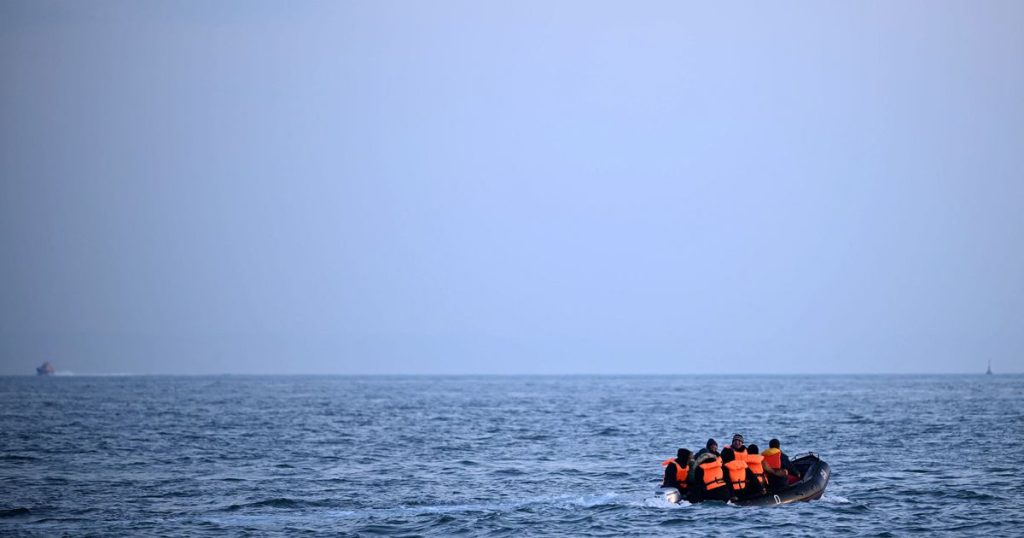Reports indicate that at least five people have died while attempting to cross the English Channel from France to the UK in small boats. The French coastguard initiated an emergency operation after hundreds of individuals set off in flimsy craft from France. By 11am, five people were confirmed dead, with reports of “lifeless bodies” being found near the coast of Boulogne sur Mer. The French coastguard confirmed the failed crossing and said that police were present at the scene. Many people were being rescued and taken to a beach at Wimereux. This incident follows a previous tragedy where five migrants died on their way to Britain on January 14. The UK government’s recent Rwanda bill, aimed at deterring migrants from crossing the Channel in small boats, was passed just hours before this event.
After months of debate and resistance, Rishi Sunak’s Rwanda Bill has finally passed, allowing for the relocation of asylum seekers to Rwanda. The Safety of Rwanda (Asylum and Immigration Bill) was cleared by Parliament, ending the opposition from peers. Preparation for the first flights to Rwanda will begin, with asylum seekers identified and potentially detained. Charter planes are expected to depart for Rwanda within 10-12 weeks, with the promise of multiple flights a month. Prime Minister Boris Johnson hailed this legislation as a significant step in deterring vulnerable migrants from making dangerous crossings and breaking the business model of criminal gangs. Despite challenges from the European Court of Human Rights and various human rights organizations, Sunak is determined to see the plan through, with a focus on saving lives and preventing illegal entry into the UK.
The passing of the Rwanda Bill marks a fundamental shift in the global approach to migration, according to the Prime Minister. The aim is to discourage illegal migrants from attempting risky journeys and to disrupt the human trafficking networks that exploit them. The UK government has faced criticism from various quarters, including the European Court of Human Rights and human rights organizations, for what they view as an infringement on judicial independence and the rule of law. The Supreme Court had previously ruled the policy unlawful in November, but the government pushed forward with the bill, leading to accusations of undermining the safeguards that protect individuals from abuse of power by the state. The government’s determination to enforce this legislation has sparked debates around human rights, the rule of law, and the treatment of asylum seekers.
The passing of the Rwanda Bill comes amidst ongoing tragedies in the English Channel, where migrants risk their lives in small boats to reach the UK. The recent deaths highlight the dangers faced by individuals seeking asylum and the urgent need for comprehensive solutions to address the root causes of migration. While the bill aims to deter such crossings, critics argue that it may push vulnerable individuals into even riskier situations. The humanitarian aspect of the migration crisis cannot be ignored, and policymakers must consider the human rights implications of their decisions. The delicate balance between border security and compassion for those in need remains a complex challenge for governments and international bodies.
The UK’s decision to send asylum seekers to Rwanda has raised ethical and legal concerns, with calls for a more humane approach to migration. The government’s insistence on proceeding with the plan, despite opposition and legal challenges, reflects a broader debate around migration policies in Europe and beyond. The escalating migrant crisis in the English Channel underscores the need for coordinated and compassionate responses to protect the safety and rights of vulnerable individuals. As governments grapple with complex migration issues, finding a balanced and sustainable solution remains a pressing challenge. The tragic loss of lives in the Channel serves as a stark reminder of the human cost of failed policies and the urgent need for a more effective and humane approach to migration management.


